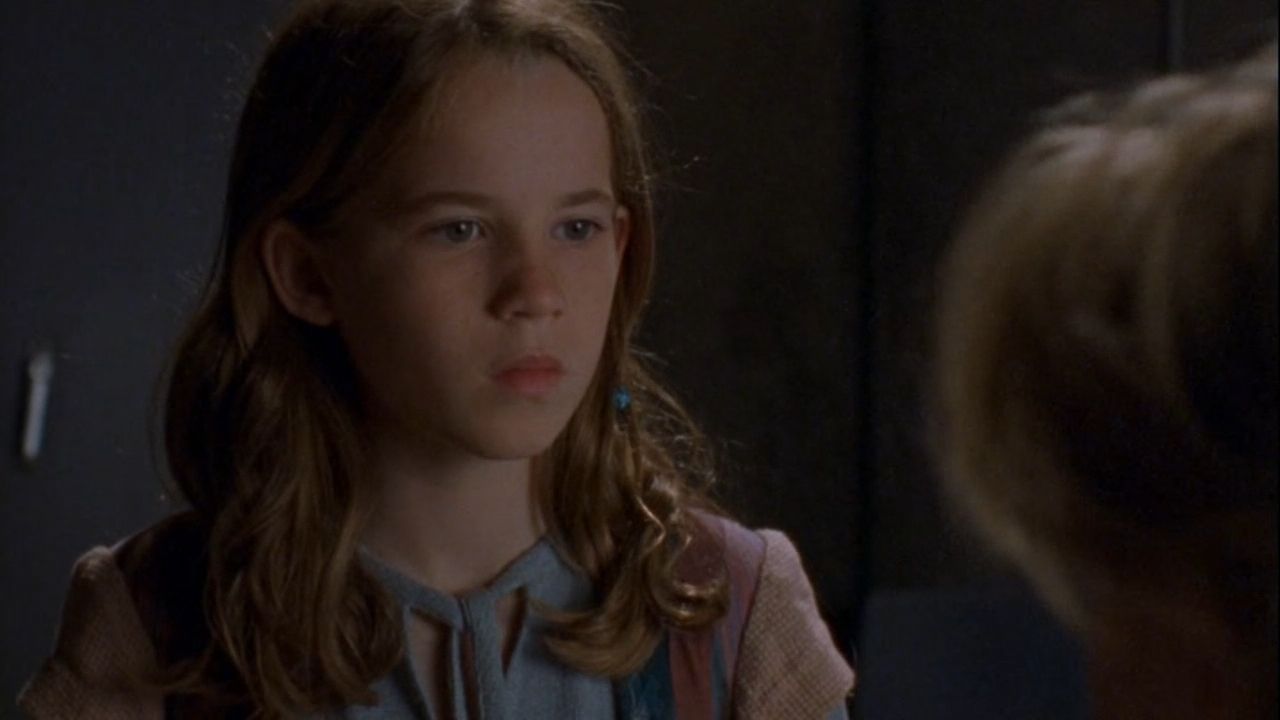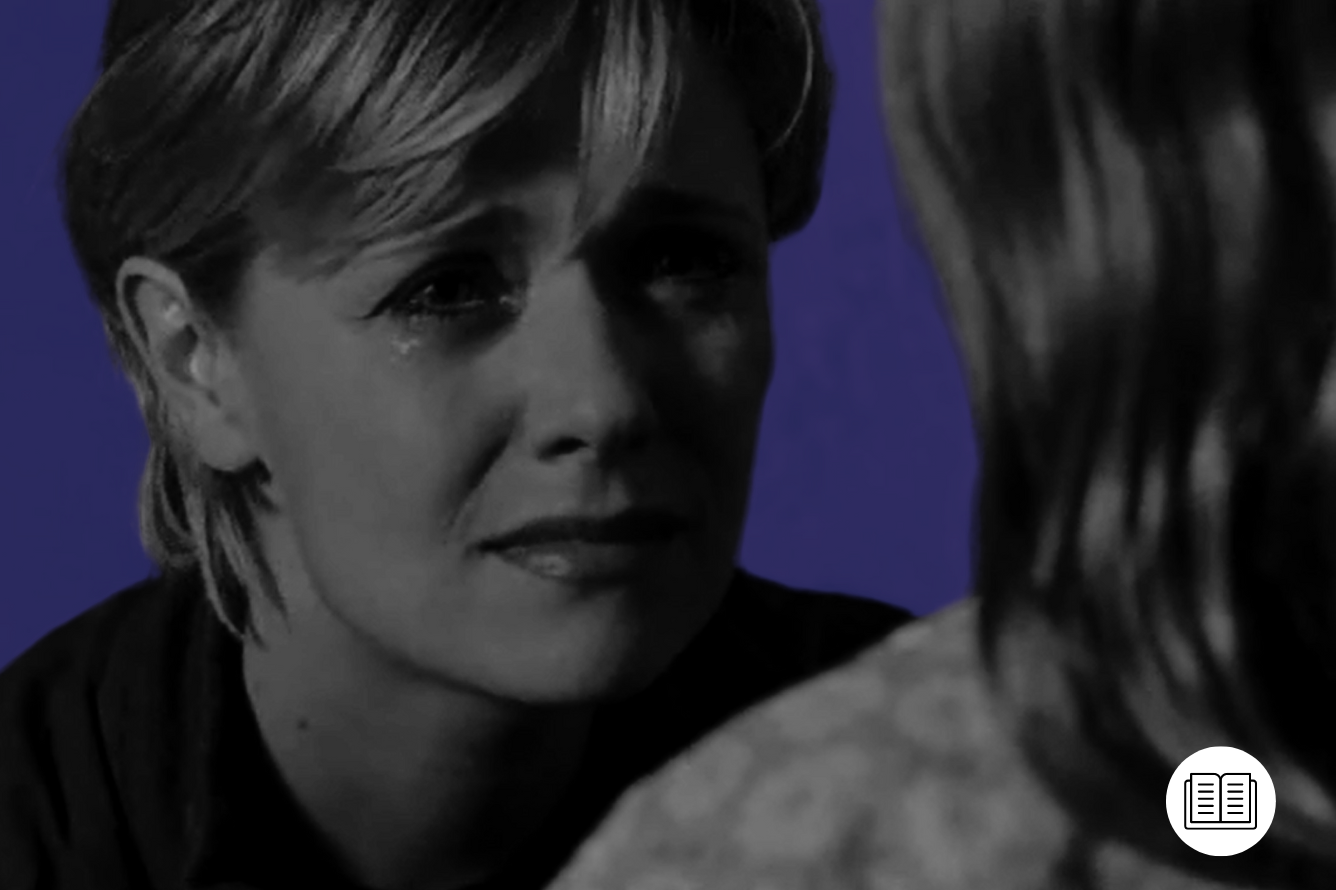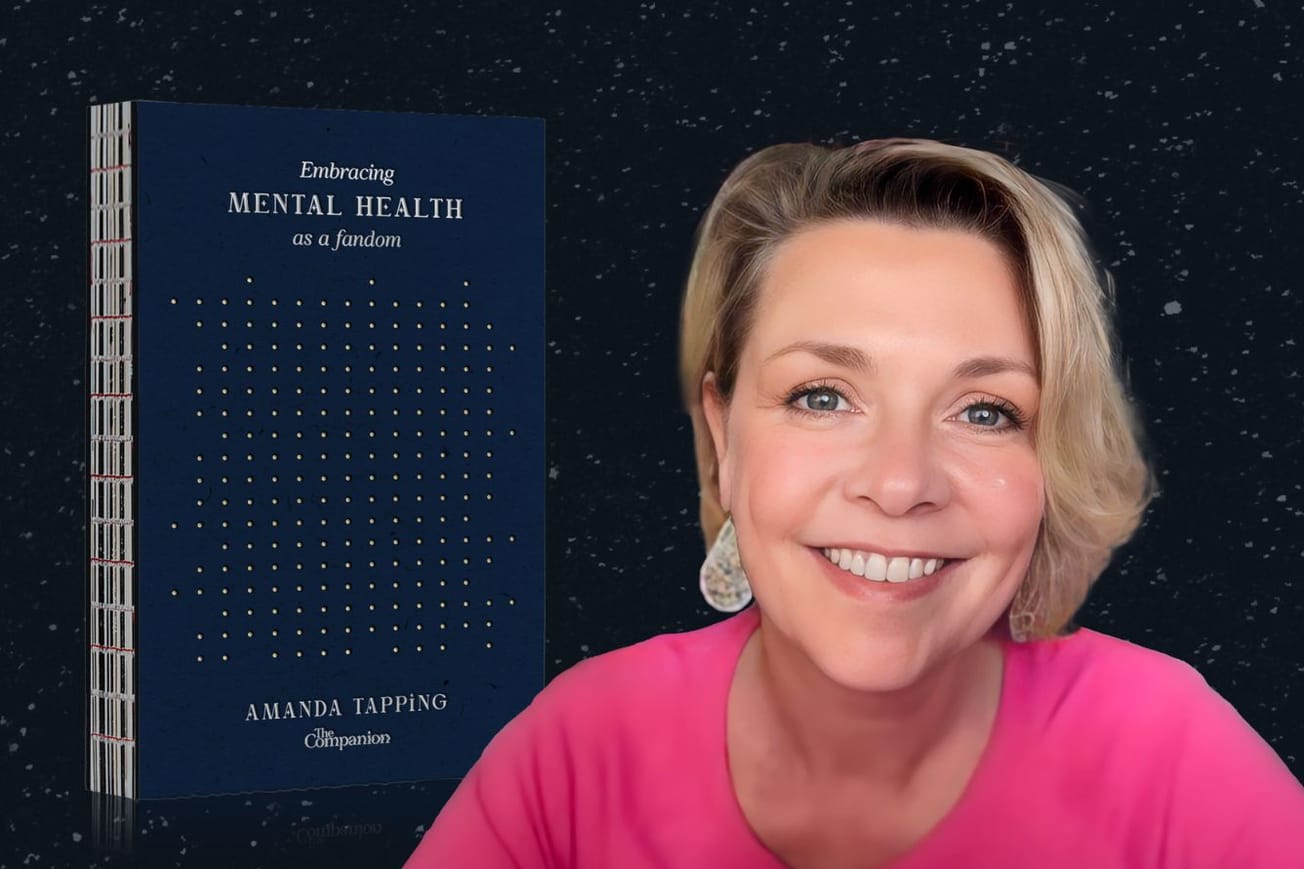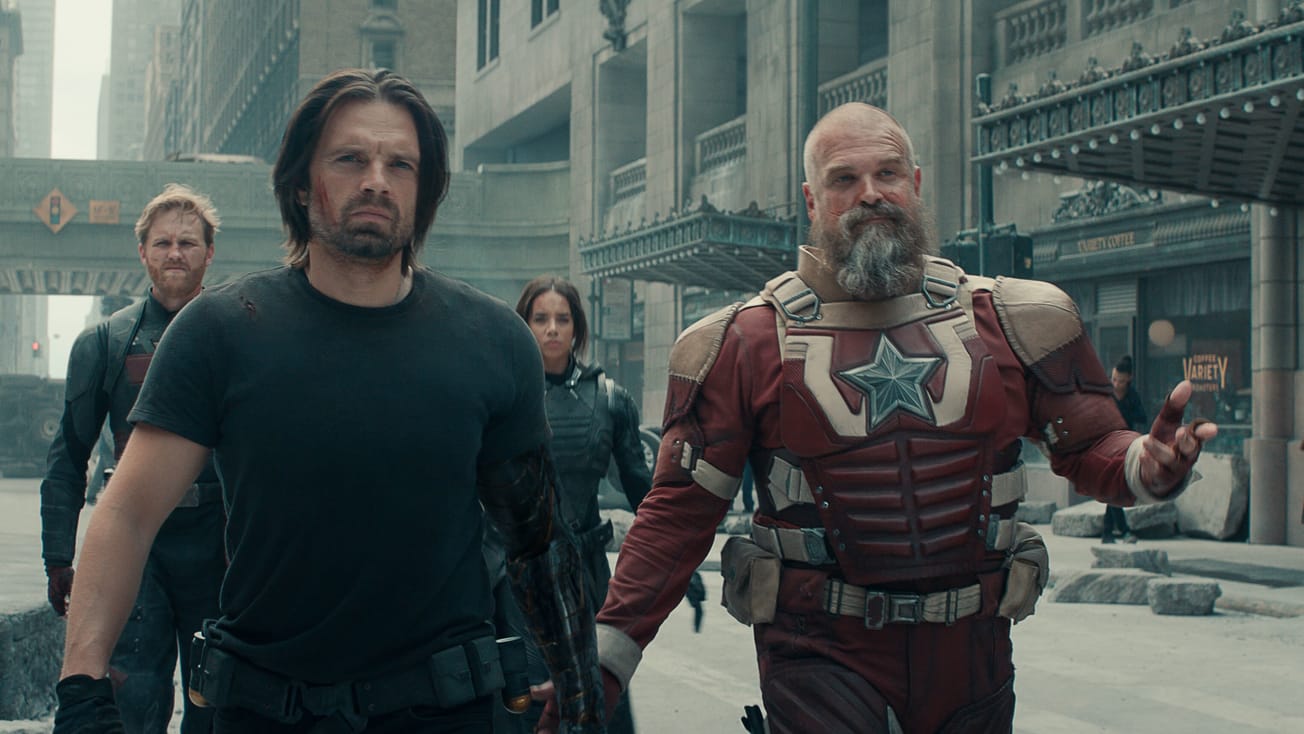One of the strongest episodes of Stargate SG-1’s first season, ‘Singularity’ is perhaps the first truly great Carter-centric story. The team pops through the gate to the agricultural backwater of Hanka to observe the titular astronomical event, talk of which peppers the episode as its importance ebbs and flows in conjunction with the more immediate crisis.
When they arrive they discover a mysterious chemical or bacteriological event has slaughtered both the inhabitants and the unassuming redshirts of SG-7, who all lie dead in their bunks). Whilst grimly tallying the casualties in their hazmat suits, the gang encounters a single survivor – a seemingly immune young girl called Cassandra (Katie Stuart, most recently a regular on The Returned and The 100, and three episodes of Altered Carbon) who is coaxed out of the corn by one of those disconcerting Teal’c smiles we’re still getting used to.
Sharing as she does her name with the seer of Ancient Greek myth, cursed to be ignored by her fellows, and accompanied portentous lines about the black hole (the locals believed “with the darkness would come the apocalypse,” reports Daniel rather too credulously) we’re encouraged to look to the skies for threat. We eventually get some Goa’uld Death Gliders and the very first Ha’tak attack ship of the series, but it’s not much of an apocalypse and it’s not got much to do with the singularity.
In fact, the infection doesn’t really get any real resolution either, other than a shrug and some speculation. But then this isn’t either Star Trek: The Next Generation or The X-Files, both of whom you could imagine tackling very similar stories but with a very different emphasis when it came to pulling the plot levers.

Those stories could well be playing out somewhere else with the Other Guys, but just as ‘Singularity’ isn’t about a singularity, it’s not about investigating a mysterious plague or what the Goa’uld are up to on Hanka either.
‘Singularity’ is wholly about Captain Samatha Carter and surfacing an internal struggle that anchors the character, depicted so deftly by Amanda Tapping. But it’s also about being a woman in a strongly male environment, which to one degree or another is a space that the vast majority of women have to navigate on a daily basis.
“I’m The Girl”: Samantha Carter and Women in the Military
To put Sam in context, although women have long had roles in the US Air Force, it was only as recently as 1993 that the prohibition of women in combat roles was lifted (it was lifted in the US Army in 2013) and the first three women were trained as fighter pilots. Presumably, in the Stargate universe, Sam was one of them, although she did claim a combat record during the First Gulf War (1991) putting science fiction well ahead of reality as usual.
The debate around women in the military dominated the English-speaking world in 1997 – the year ‘Singularity’ was first broadcast – with the release of Ridley Scott’s G. I. Jane that summer giving you an idea of how prominently it featured in public discourse.

Much of the opposition focused on physicality – whether a woman was literally strong enough for combat – and on the vague dangers posed to morale and unit cohesion, by the ‘distraction’ of a woman. These are concerns that are for the most part unique to the military and maybe a few other fields, like, I don’t know, sumo wrestling. What ‘Singularity’ explores is something more commonplace, the perception that women are more emotional and therefore irrational. That they’re not held to the same standard as men, whose outbursts aren’t seen as part of the inherent disadvantage of their gender.
Once Cassandra is declared free of the infection, Jack announces that she’ll be returning with them, prompting a bizarre rationalization from Sam as to why she shouldn’t be returning alongside her:
Jack: So, she goes back with us.
Sam: Doctor, would it be safe for someone to stay a little while longer? I mean, we’re safe right now, right?
Jack: Captain?
Sam: Sir, the eclipse happens in less than one day. This is our only opportunity to use this window of darkness to photograph the black hole with this telescope. It could change the course of human history. I don’t want to belittle what’s happened here, but if we just pack up and leave, SG-7 and all these people will have died for nothing.
Jesus Sam, how many fatalities are a fair exchange for getting to watch a black hole slurp up some matter? The appeal is so absurd, so obviously conjured up on the hoof, that I’d argue it can be read as not Sam reacting to the threat of missing out on some dope astrophysics, but her reacting to the threat of Cassandra’s proximity. It’s not that she doesn’t care about SG-7 or the poor bloody Hankans, but that she cares about Cassandra and she’s scared of how that will be perceived in the hyper-masculine environment of SGC.
She feels vulnerable and exposed, like the house of cards she’s built could crumble so easily. After all, we’re only an episode on from the Stargate SG-1 episode ‘Hathor’ (S1, Ep14) in which an Ancient Egyptian sex goddess blows kisses of pink mist at all the lads and Sam admits:
“Man. I think maybe it’s just me, but I can’t figure out how to feel like one of the guys with these guys, you know what I mean? I always feel like I’m The Girl.”
But when this girl slips in behind her and clutches her arm, Sam realizes that this isn’t a responsibility she can shirk – and nor does she want to because just not who she is.

“Supposed to be Detached”: Samantha Carter and the Luxury of Feeling
Much like the episode itself – which claims to be about something other than what it is – Sam’s lines give away little about her emotional journey through ‘Singularity’. However, she communicates so much to those prepared to turn the episode over their minds long after the credits have dropped to black.
Immediately after she attempts to dodge the whole business, she returns through the Stargate with Cassandra, taking her by the hand and promising that it’s nothing to be afraid of, but these early interactions are tinged with a hesitance that she never lets the child witness. It’s just a look here and a drawn breath there, enough for the viewer to catch. It could be a concern for Cassandra’s well-being, but I’d argued that there’s something much more subtle going on.
Like an unwitting suicide bomber, Cassandra has been set up to explode in the proximity of a Stargate, with the Goa’uld counting on SG-1 bringing her back to base so that they could take humanity out of the game entirely. She’s a nuclear warhead, with a literally ticking countdown clock in her chest.
It’s worth noting here, that the entire Goa’uld gambit depends on the team’s compassion, not specifically Sam’s. Yet the compassion of Jack (Richard Dean Anderson), Teal’c (Christopher Judge), or Daniel (Michael Jackson) doesn’t carry the same risk of being interpreted as weakness (well, maybe Daniel’s does) or the weakness of an entire gender.
Sam: How could they do this?
Daniel: Well, to the Goa’uld, she’s not as we see her. She’s a tool. Her death is a very cheap way to get rid of us.
Sam: I know I’m supposed to be detached.
Daniel: Who said that?
Sam: Sometimes I forget you’re not military.
That’s the closest we get to an admission of what’s really going on, an exchange that the whole episode has to be viewed through the context of. Even the indirect manner in which the information is delivered tells us so much about the culture she is operating in as she doesn’t make a single direct statement about how she feels. Instead, Sam asks a question and makes two generalized statements that reveal to us that she’s emotionally invested but can’t allow it show, and she is at the mercy of a set of values that demand she keeps these feelings withheld.

I’d be tempted to add that “sometimes I forget” is an enigmatic criticism of Daniel’s own lack of outrage and his more resigned reading of events as she looks for understanding in the softest of the soft scientists. The main takeaway is that even in conversation with the team’s doe-eyed academic, Sam is careful with how she shares the feelings that she knows full well could open her up to being undermined.










